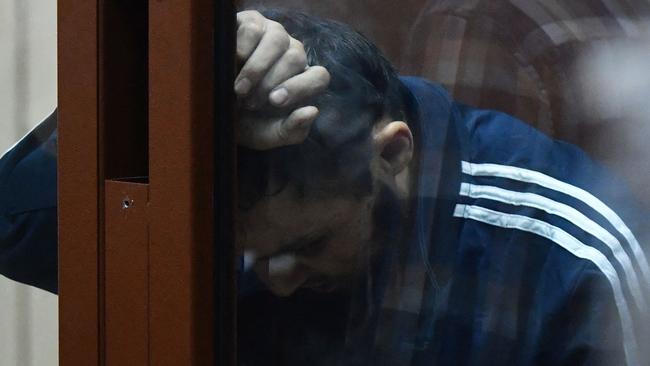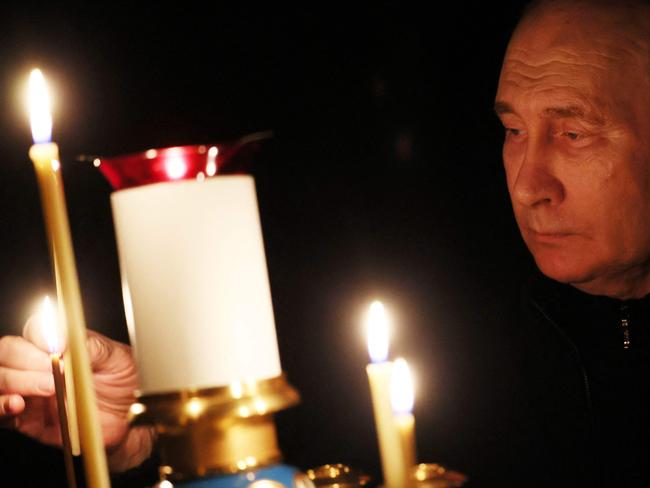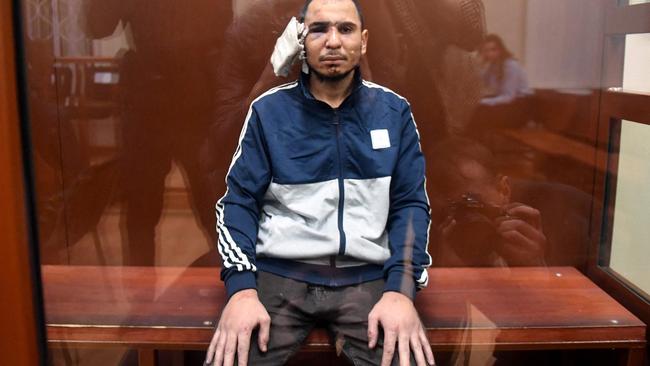Attack on Russian concert hall threatens Putin’s strongman image
The attack is seen as Putin’s failure to deliver on his promises of stability, while questions are being asked over why it took security forces more than an hour to respond as people died.

Last week, Russian President Vladimir Putin dismissed American warnings of an imminent terrorist attack and urged leaders of the country’s security services to focus on catching Ukrainian spies instead.
Three days later, Islamic State gunmen rampaged through a concert hall outside Moscow, killing more than 130 people in the deadliest episode of terrorism in Russia in decades.
As Russia marked a national day of mourning on Sunday, the bloody assault on one of the nation’s best-known entertainment venues threatened to undermine Putin’s carefully cultivated strongman image and raised questions about the ability of the authoritarian state he has built to deliver on its promise of security for the Russian people.
It is a challenge that comes as Russia wages a costly war of attrition against neighbouring Ukraine and struggles to prevent Ukrainian forces from striking targets deep inside Russian territory. Kyiv recently has managed a series of hits on oil refineries across Russia, disrupting production.

The return of Islamist terrorism is also a challenge for the Kremlin because it is at odds with the vision of the world presented in Russian propaganda – that Russia, in an alliance with developing countries and the Muslim world, is waging an existential struggle against the American-led West.
On Sunday, Russians brought flowers to impromptu memorials in cities and towns across the country. Putin, wearing black, was shown on state television lighting candles in memory of the victims in an ornate Orthodox chapel. Meanwhile, rescue teams sifted through the rubble at the Crocus City Hall, trying to find any remaining bodies of those who died in the attack and ensuing fire.

Before Putin assumed power in December 1999, Russia was rocked by terrorist attacks blamed on Chechen Islamists. Putin famously pledged to “whack them in their outhouses” – signalling that he would dispense with legal niceties to hunt down militants and restore security.
The terrorism of the late 1990s and early 2000s strengthened Putin’s rule, with Russians clamouring for action to restore law and order. Russian liberal opposition leaders and investigative journalists at the time accused the Federal Security Service, or FSB, of orchestrating some of the bombings to help it tighten Putin’s grip on power.
It is unclear how Friday’s attack on the Crocus City Hall concert venue will ripple through Russia’s domestic politics. Putin has sought to connect the attack – claimed by Islamic State – to Ukraine, and officials in Kyiv say they fear he will use it as a justification to devote even more men and money to the war.
“This is perceived as Putin’s failure to deliver – he had come with promises of peace and stability, and where is that peace and stability now?” said Abbas Gallyamov, a former Putin speechwriter who has since become an opponent of the regime. “If it’s indeed Islamic State, then your entire foreign policy is worthless – which is why they are trying so hard to pin blame on Ukraine.” Putin didn’t explicitly accuse Ukraine of involvement in Friday’s attack. He said suspected terrorists were fleeing toward Ukraine where “a window” had been opened for them at the border.
Other senior Russian officials have dismissed Islamic State’s claim of responsibility and openly threatened Kyiv with retribution. Ukraine and Western governments have rejected as malicious propaganda Russian suggestions of a Ukrainian role in Friday’s attack.
Even on Russian television, some experts publicly doubted the claims of Ukrainian involvement. They instead raised uncomfortable questions about why Russian security services, which have acted with lightning speed to crush protests against the war in Ukraine, took more than an hour to respond to the Crocus attack.
“What could Ukraine gain from this terror attack is not very evident,” political analyst Mikhail Vinogradov wondered on RBK TV on Saturday. “We need to redefine the theme of security,” he said. “The priority of law enforcement has been mostly the public figures who are critical … Terrorism was defined as criticism of the Russian authorities and Russian policies.” On social media and in private conversations in Russia, reaction focused on some of the key aspects of the system created by Putin’s nearly quarter-century rule.
One question was whether the war in Ukraine has distracted Russia’s law-enforcement and intelligence services from their anti-terrorism mission.
While Ukraine has launched hundreds of drones to strike oil refineries, military airfields and other targets in Russia, in response to Moscow’s relentless missile-and-drone campaign against Ukrainian cities, none of these Ukrainian attacks has resulted in mass civilian casualties.
“Maybe the FSB was so preoccupied with the war in Ukraine and the dangers emanating from there that they somehow failed to see this,” said Grigorij Serscikov, an independent expert in anti-terrorism and intelligence based in the Netherlands. “They’re stretched, battling on too many different” fronts.
The war has also exacerbated Russia’s reliance on migrant workers from the Muslim-majority states of Central Asia, particularly Tajikistan and Uzbekistan, as Russia’s economy has pivoted to a war footing that has pushed unemployment to a record low. Hundreds of thousands have found work in the defence industry. Others have been pulled into the military and sent to the trenches.
More than 300,000 Russian soldiers have been injured or killed in Ukraine, according to U.S. estimates.
The four attackers on Friday hailed from Tajikistan, according to Russian authorities. Some barely spoke Russian.
While exact statistics are unavailable, Central Asian workers can come to Russia visa-free and several million have settled in Russia’s main cities in recent years – often living largely separated from wider Russian society in conditions that leave them exposed to recruitment by criminal gangs and Islamists.
Muslims – migrants and those born in Russia – are estimated to make up as much as 20% of the country’s population.
Friday’s attack shows “the risks of the policy of encouraging immigration, which has been implemented by Russian authorities in the past two decades,” said Ruslan Pukhov, head of the Moscow-based security and defence think tank Center for Analysis of Strategies and Technologies. “Giant Muslim enclaves and diasporas have formed, and the outbursts of radical Islamists became just a question of time.” Dissatisfaction with immigration, which was once a major focus of Russian nationalists has spread in the wider society, though many Russians recognise the country is far too dependent on Central Asian labour to change tack suddenly now.
“I wish we had stopped them from coming 15 years ago, but the current situation is such that there’s no longer anything we can do,” said Alexei Zakharov, the owner of the online job hunting site Superjob.ru.
While one of Putin’s main promises has been to curb corruption, the huge death toll from the fire that erupted after the initial shooting attack on Crocus has renewed conversations about continuing graft.
The vast hall burned to the ground, with many visitors dying of smoke inhalation after the four known assailants fled the premises and drove to the Bryansk region bordering Belarus and Ukraine. Many Russian analysts wondered whether this happened because construction and safety rules hadn’t been followed.
Aras Agalarov, the Azerbaijan-based billionaire owner of Crocus, told Russian TV that all the sprinklers, alarms and fire-retardant technologies in the concert hall functioned properly during the fire. “All the systems worked very well,” he said.
Two years ago, the FSB, Russia’s main intelligence agency, failed to predict the Ukrainian population’s and military’s willingness and ability to fend off a Russian attack, contributing to the failure of Russia’s initial attempt to take over the country.
Since then, the FSB has been focused on monitoring public criticism of the conflict, either online or in the streets. Under wartime legislation, any criticism of the Russian military – such as suggesting that Russian soldiers were responsible for killing Ukrainian civilians in Bucha or Mariupol – is subject to punishment with prison terms.
Following several high profile assassinations of some of Russia’s most public supporters of the war, the FSB turned its attention to pursuing Russians and Ukrainians believed to be working for Kyiv’s military intelligence. And it is zealously pursuing political opponents at home.
“The terror attack will very likely be used for turning the screws even further,” said Pukhov, the think-tank head.
Dow Jones







To join the conversation, please log in. Don't have an account? Register
Join the conversation, you are commenting as Logout